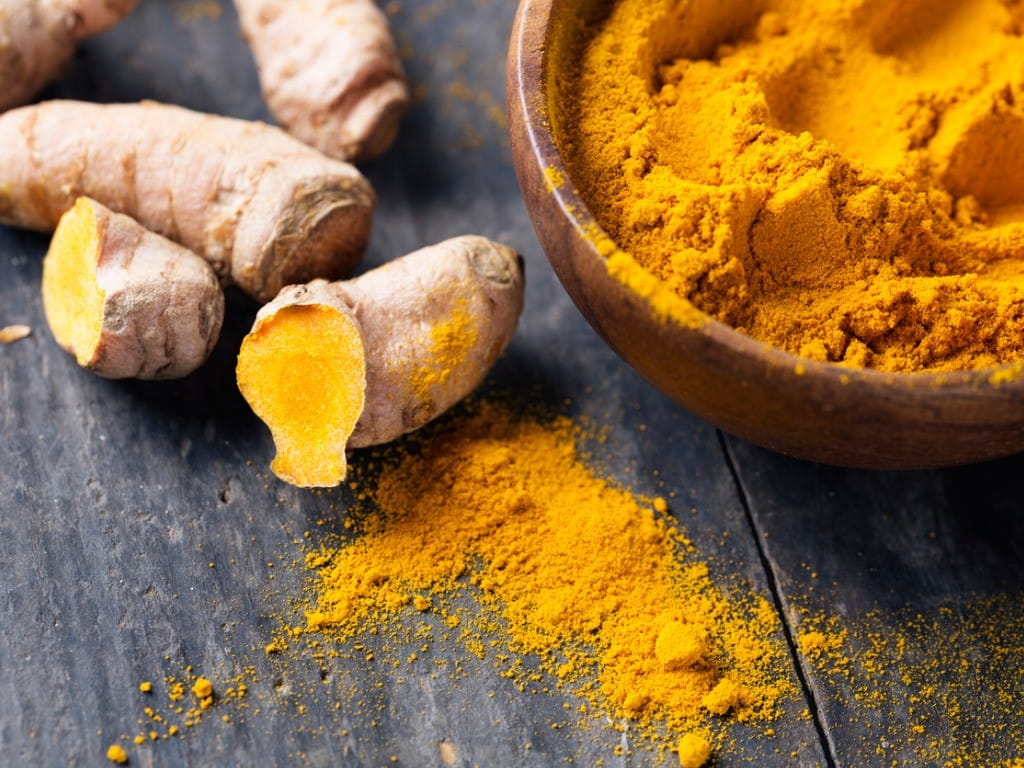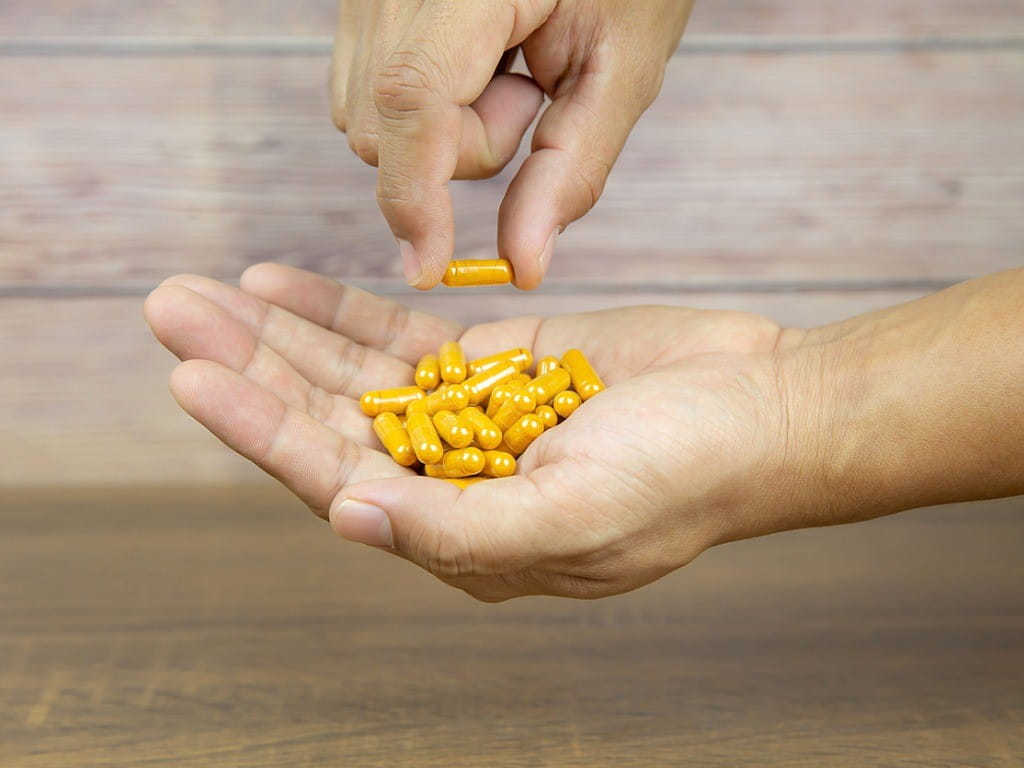Turmeric: From the Kitchen to Cancer and COVID-19

The Bottom Line
Turmeric is a popular spice that has been used for centuries as an herbal medicine due to its antioxidant and anti-inflammatory properties. Despite its popularity, turmeric is actually poorly absorbed by the human body. Although some have advocated for its use as a treatment for COVID-19, data to support the use of turmeric for COVID-19 are lacking.

The Full Story
Turmeric is a spice derived from the Curcuma longa plant; the Latin name Curcuma is derived from kourkoum, the original Arabic name for saffron. This plant is native to tropical areas of Asia and is a member of the ginger family. The turmeric plant grows to 3–5 feet in height and has colorful, yellowish flowers. Its underground stem (rhizome) is harvested and ground into a powder. The powdered spice is used as a food additive for flavor and color. It is also used as a skin dye and cosmetic agent for weddings and other ceremonies.
The active ingredient in turmeric, curcumin, is responsible for the bright yellow color of the spice. Curcumin and its related compounds are called curcuminoids. Turmeric generally contains 2–9% curcuminoids depending on the origin of the plant as well as soil and growing conditions. Curcumin has been used as an herbal medicine for hundreds of years and it is claimed to have antioxidant, anti-tumor growth, and anti-inflammatory activity. In animal studies, curcumin exhibits activity against multiple types of cancer. Due to its anti-inflammatory effects, curcumin has been proposed as a potential treatment for COVID-19. However, there is currently no published research regarding the correct dosage, duration of treatment, route of administration, or effectiveness of turmeric or curcumin for COVID-19.
A major limitation of curcumin is its poor absorption by the human body. Studies have shown that when curcumin is swallowed it is only detectable after large doses are taken. Curcumin is often marketed along with piperine (a derivative of black pepper) as this combination enhances the human absorption of curcumin by 2000%. Even after the addition of piperine, curcumin still has a limited presence in the human body after it is taken by mouth. In one study, curcumin was only detectable for a few hours after oral ingestion.
Side effects of curcumin ingestion include abdominal pain, nausea, and diarrhea. Curcumin has also been implicated in several cases of liver injury in patients who took the supplement chronically. While curcumin is most frequently marketed in capsules, topical creams and powders are also available. Skin exposures to curcumin powder or cream have resulted in rashes, blisters, and itching, and curcumin causes contact dermatitis in some people. Intravenous curcumin injection has been explored as a potential treatment for cancer but has not been found to be effective. Additionally, major adverse effects including red blood cell breakdown (hemolysis) and death have occurred after intravenous injection of turmeric. Curcumin affects multiple enzyme systems and might alter the human body's ability to metabolize other medications.
Curcumin should be well tolerated by most people when taken by mouth as a spice or as a dietary supplement in standard doses, in part because curcumin is poorly absorbed by the human body. People experiencing abdominal pain, jaundice (a yellow discoloration of the skin and whites of the eyes), severe vomiting or diarrhea, or rashes during or after use of turmeric should seek medical attention promptly. Intravenous use of turmeric is very dangerous (even fatal) and is not recommended.
Like many other substances, curcumin has been proposed as a possible treatment of COVID-19. Currently, research has not shown that curcumin is effective against COVID-19 in humans. You should not use this spice to prevent or treat symptoms of COVID-19.
If you suspect someone has been exposed to curcumin and is having a problem, check the webPOISONCONTROL® online tool for guidance or call Poison Control at 1-800-222-1222.
Kelly Johnson-Arbor, MD
Medical Toxicology Physician
Poisoned?
Call 1-800-222-1222 or
Prevention Tips
- Keep turmeric and all spices and herbal medicines out of reach of young children.
- Consult with your physician and pharmacist before starting a turmeric regimen to avoid interactions with prescription and over-the-counter medications.
- Never use intravenous (injectable) forms of turmeric.
This Really Happened
A 31-year-old woman was given an intravenous infusion of turmeric by her naturopathic practitioner for the treatment of eczema. A few minutes after the infusion was given, she went into cardiac arrest. She was given CPR and was taken to a hospital where she died. The US Food and Drug Administration analyzed the turmeric formulation that she had received and found that it contained curcumin as well as contaminants that might have contributed to her cardiac arrest and subsequent death (from Lasoff et al.).For More Information
References
Elsayed ASI. The curcumin as an antioxidant natural herb, with emphasize on its effects against some diseases. Int J Appl Biol Pharm. 2016;7(1):26-40.
Poisoned?
Call 1-800-222-1222 or
Prevention Tips
- Keep turmeric and all spices and herbal medicines out of reach of young children.
- Consult with your physician and pharmacist before starting a turmeric regimen to avoid interactions with prescription and over-the-counter medications.
- Never use intravenous (injectable) forms of turmeric.
